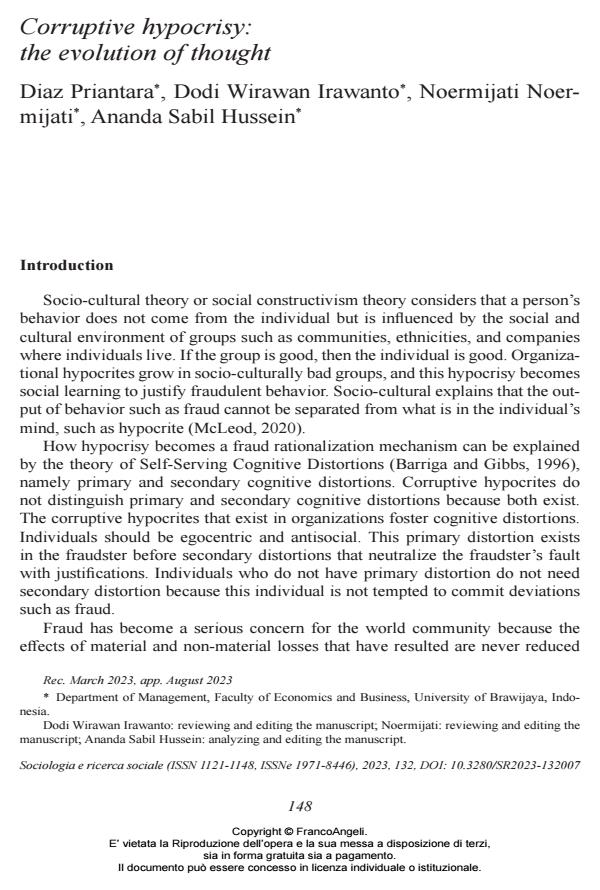Corruptive hypocrisy: the evolution of thought
Titolo Rivista SOCIOLOGIA E RICERCA SOCIALE
Autori/Curatori Diaz Priantara, Dodi Wirawan Irawanto, Noermijati Noermijati, Ananda Sabil Hussein
Anno di pubblicazione 2024 Fascicolo 2023/132
Lingua Inglese Numero pagine 21 P. 148-168 Dimensione file 208 KB
DOI 10.3280/SR2023-132007
Il DOI è il codice a barre della proprietà intellettuale: per saperne di più
clicca qui
Qui sotto puoi vedere in anteprima la prima pagina di questo articolo.
Se questo articolo ti interessa, lo puoi acquistare (e scaricare in formato pdf) seguendo le facili indicazioni per acquistare il download credit. Acquista Download Credits per scaricare questo Articolo in formato PDF

FrancoAngeli è membro della Publishers International Linking Association, Inc (PILA), associazione indipendente e non profit per facilitare (attraverso i servizi tecnologici implementati da CrossRef.org) l’accesso degli studiosi ai contenuti digitali nelle pubblicazioni professionali e scientifiche.
Fraud has become a global problem. Fraud risk is permanently attached to every economic activity. Classical studies on fraud discuss why someone commits fraud such as the fraud triangle theory or the fraud diamond, but they still give little attention to the behaviour of groups or organizations, especially those concerning hypocrisy. This study reviewed extant literature on hypocrisy or other terms like decoupling, functional deviance, or not walking the talk. This study found the existing hypocrite has not much touched the fraud behavior and is a justification for fraud. The study of the hypocrite still discusses the interaction of work relations between employees and superiors or companies. This research provides that hypocrisy is needed by companies to maintain legitimacy and assets even though hypocrisy can be a stimulus and justification for fraud, hypocrisy is not an absolute condition but a continuous condition.
Diaz Priantara, Dodi Wirawan Irawanto, Noermijati Noermijati, Ananda Sabil Hussein, Corruptive hypocrisy: the evolution of thought in "SOCIOLOGIA E RICERCA SOCIALE " 132/2023, pp 148-168, DOI: 10.3280/SR2023-132007